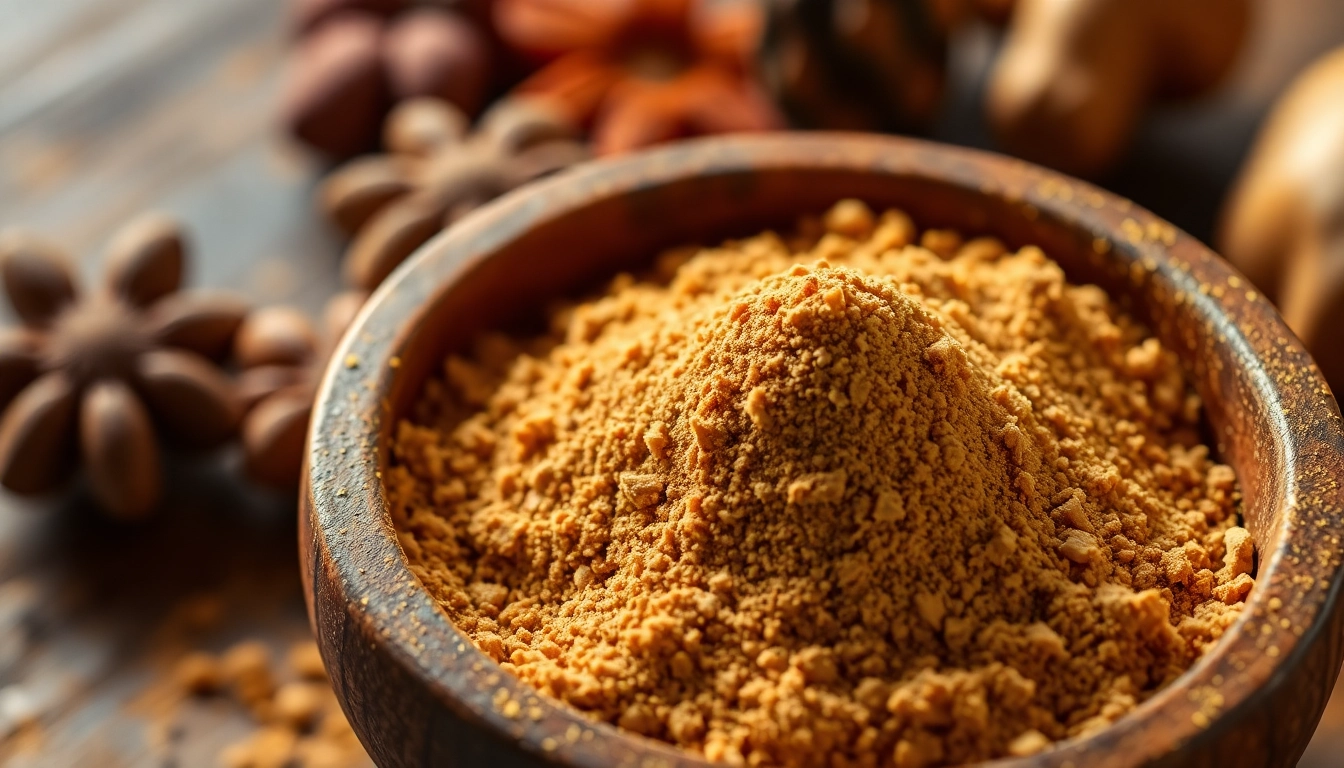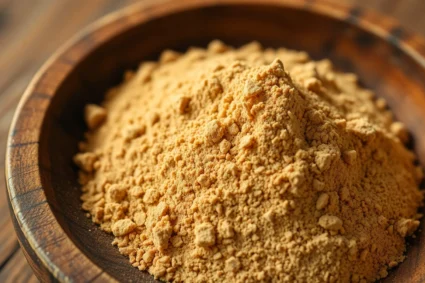
Understanding Nutmeg Powder: Varieties, Quality Standards, and Its Culinary Significance
Nutmeg powder, derived from the seeds of the Myristica fragrans tree, is a treasured spice cherished worldwide for its warm, aromatic flavor. As a key ingredient in both sweet and savory dishes, nutmeg elevates the taste profile of desserts, sauces, and beverages. Its versatility extends beyond culinary uses, with traditional medicines harnessing its therapeutic properties for centuries. When sourcing nutmeg powder, discerning consumers and food manufacturers seek quality, authenticity, and safety, making understanding its varieties and standards essential. For those interested in premium & authentic Nutmeg Powder, Nutmeg Powder from a reputed manufacturer guarantees superior quality and compliance with global standards.
Different Varieties of Nutmeg Powder Available in the Market
The market offers several varieties of nutmeg powder, often differentiated by origin, processing techniques, and flavor profile. These include:
- Indian Nutmeg Powder: Known for its strong aroma and slightly spicier flavor, Indian nutmeg is widely used in traditional Indian cuisine and herbal medicine.
- Sri Lankan Nutmeg Powder: Recognized for its milder and sweeter taste, Sri Lankan nutmeg is preferred for confectionery and beverages.
- Indonesian Nutmeg Powder: Often imported, this variety is valued for its consistent quality and aromatic intensity.
- Organic vs. Conventional Nutmeg: Organic nutmeg powder is produced without synthetic chemicals, catering to health-conscious consumers and organic markets.
Understanding these varieties helps businesses and consumers select the right product for their culinary and health needs. Premium brands often source from specific regions to ensure authenticity and superior flavor, which is crucial in gourmet cooking and health applications.
Factors That Influence the Quality of Nutmeg Powder
Several factors determine the quality of nutmeg powder, including:
- Source and Origin: Authenticity of origin influences flavor and safety. For example, top-grade nutmeg from Kerala or Sri Lanka often surpasses inferior imports.
- Processing Techniques: Proper drying, grinding, and packaging preserve aroma, reduce contamination, and ensure uniform particle size.
- Freshness: Freshly ground nutmeg retains volatile oils that impart its characteristic aroma and flavor. Exposure to air and moisture can degrade quality.
- Purity and Additives: High-quality nutmeg powder is free from additives, fillers, or adulterants, which can compromise flavor and safety.
- Certifications: Organic, ISO, and food safety certifications ensure adherence to international standards.
Factors such as storage conditions, grinding machinery, and cleaning processes also play crucial roles in maintaining superb quality, which directly influences the end-user experience and safety.
How to Identify Authentic and Premium Nutmeg Powder
Spotting authentic, premium nutmeg powder involves sensory evaluation and scrutiny of packaging. Essential indicators include:
- Aroma: Genuine nutmeg has a rich, warm, and spicy scent that intensifies on grinding or rubbing.
- Color: Premium powder exhibits a consistent, light brown hue without discoloration or powdery residues.
- Texture: It should be finely ground but not powdery or clumpy, indicating proper processing.
- Packaging: Look for sealed, airtight packaging with clear labeling, including origin, manufacturing date, expiration date, and certifications.
- Source Transparency: Reputable suppliers provide traceability details, ensuring product authenticity.
Furthermore, engaging with suppliers who consistently meet international standards and provide certificates is a reliable way to ensure product integrity. Always prefer brands with good reviews, transparent sourcing, and adherence to quality certifications.
Manufacturing and Exporting Nutmeg Powder: Processes and Certifications
Step-by-step Manufacturing Practices for High-Grade Nutmeg Powder
Manufacturing premium nutmeg powder involves meticulous steps to preserve aroma, flavor, and safety:
- Harvesting: Handpicked mature nuts ensure optimal flavor and aroma.
- Cleaning and Sorting: Removal of shells, debris, and defective nuts maintains quality.
- Drying: Sun drying or controlled dehydration prevents mold and preserves volatile oils.
- Grinding: Using stainless steel machinery in hygienic environments ensures fine, uniform powder.
- Sieving and Packaging: Fine sieving removes larger particles, and packaging under inert or nitrogen atmospheres prolongs freshness.
Adhering to Good Manufacturing Practices (GMP) and Hazard Analysis Critical Control Point (HACCP) standards is crucial for compliance and safety, especially for export purposes.
International Quality Standards and Certifications to Look For
To meet global market demands, exporters must acquire relevant certifications such as:
- ISO 22000: Food safety management system ensuring safe manufacturing practices.
- Organic Certification: Certification from recognized bodies like USDA Organic or India Organic, indicating chemical-free production.
- HACCP: Hazard analysis and critical control points certification for safety assurance.
- Fair Trade: Ensuring ethical sourcing and labor practices.
These certifications bolster consumer confidence, open new markets, and ensure compliance with international trade regulations.
Export Opportunities and Market Trends for Nutmeg Powder Globally
The global demand for nutmeg powder continues to grow, driven by increasing health consciousness and culinary innovation. Major markets include Europe, North America, Middle East, and Southeast Asia. Trends influencing export include:
- Rising preference for organic and sustainably sourced spices.
- Expansion of gourmet and health-food sectors requiring high-quality, certified products.
- Innovations in packaging that extend shelf life and ease of use.
- Emergence of herbal and traditional medicines incorporating nutmeg for its therapeutic properties.
India emerges as a leading exporter, with companies like Spice Nest leveraging advanced processing and certifications to penetrate these markets effectively.
Best Culinary and Medicinal Uses of Nutmeg Powder
Popular Recipes Featuring Nutmeg Powder
Nutmeg is a versatile spice that enhances both sweet and savory dishes. Some prominent culinary uses include:
- Bakery Products: Cakes, cookies, bread, and muffins benefit from a pinch of nutmeg for warmth and depth.
- Milk-based Beverages: Hot chocolate, eggnog, and chai incorporate nutmeg for aromatic richness.
- Savory Dishes: Sauces, stews, and meat tenderizers often include nutmeg to add complexity.
- Vegetable Dishes: Roasted vegetables, mashed potatoes, and purees gain flavor from a hint of nutmeg.
In traditional Indian and Southeast Asian recipes, nutmeg complements spices like cinnamon, cloves, and cardamom, creating layered flavors.
Health Benefits and Medicinal Properties of Nutmeg Powder
Beyond flavor, nutmeg is valued for its medicinal attributes, which include:
- Digestive Aid: Enhances digestion and alleviates indigestion and bloating.
- Anti-inflammatory: Contains compounds that reduce inflammation and pain.
- Antioxidant: Rich in antioxidants that combat oxidative stress.
- Sleep Inducer: Traditionally used to promote sleep and reduce insomnia.
- Brain Health: Some studies suggest neuroprotective effects, aiding cognitive functions.
However, moderation is key, as excessive consumption can lead to toxicity. Consult healthcare professionals before integrating nutmeg into medicinal routines.
Tips for Storage and Preserving Freshness of Nutmeg Powder
Proper storage preserves flavor, aroma, and safety:
- Store in airtight containers, preferably dark glass jars or metal tins.
- Avoid exposure to direct sunlight, moisture, and heat.
- Keep away from strong-smelling substances to prevent aroma absorption.
- Consume within one year of purchase to enjoy optimal freshness.
Regularly check for clumping or discoloration, and replace if quality diminishes.
Choosing Reliable Suppliers for Nutmeg Powder: Key Considerations and Best Practices
Key Factors to Evaluate When Sourcing Nutmeg Powder from Manufacturers
Partnering with trustworthy suppliers involves assessing:
- Product quality and consistency
- Certification and quality assurance credentials
- Reputation and experience in the spice industry
- Transparent sourcing and traceability
- Capacity for bulk supply and timely delivery
Engaging with reputed companies like Spice Nest ensures procurement of authentic, high-grade Nutmeg Powder that meets international standards.
How to Verify Certifications and Quality Assurance from Suppliers
Always request and verify documentation such as:
- Organic certificates (if applicable)
- ISO and HACCP certifications
- Food safety management approvals
- Traceability reports
- Test reports for contaminants and adulterants
Partnering with suppliers who maintain consistent quality and transparency minimizes risks and builds long-term trust.
Building Long-term Partnerships with Trusted Nutmeg Powder Exporters
Sustainable business relationships hinge on clear communication, shared quality standards, and mutual growth strategies. Regular audits, feedback, and collaboration foster loyalty. Choosing leaders in the industry, such as Spice Nest, with a proven track record in exports and certifications, positions your business for success.
Future Trends and Innovations in the Nutmeg Powder Industry
Emerging Markets and Consumer Preferences
The future of the nutmeg powder industry is shaped by evolving consumer demands, including increased interest in organic, non-GMO, and sustainably sourced spices. Markets in North America, Europe, and Asia are witnessing a shift toward premium and ethically produced products, creating new opportunities for exporters.
Innovative Packaging and Delivery Methods
Advances in packaging, such as biodegradable pouches, stand-up sachets, and vacuum-sealed tins, improve shelf life and reduce contamination. Smart packaging with QR codes enhances traceability. E-commerce platforms facilitate direct consumer access, expanding market reach.
Impact of Organic and Sustainable Practices on Nutmeg Powder Production
Organic cultivation not only meets rising consumer demand but also contributes to environmental sustainability and biodiversity. Sustainable practices such as fair trade certification, responsible harvesting, and eco-friendly processing position manufacturers as industry leaders and cater to global ethical standards.














